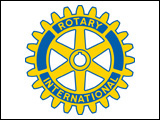In bioethics there are four primary ethical principles: respect for personal choices of the patient (autonomy), beneficence (do good), nonmaleficience (do no harm) and justice (equity is the distribution of care). Now that’s a boring way to start and article, isn’t it?
Shortly, our federal government will be tabling legislation related to physician assisted death (PAD). One of the primary drivers behind this development is the belief that the ethical principle of autonomy trumps all the other principles of bioethics. A few months ago I was watching an episode of Chicago Med, a TV show about a Chicago emergency department. In this episode a man who needed a heart transplant was being kept alive by some external medical device which cause continual intolerable side effects. He came into the emergency in crisis and he wanted the device removed. Eventually, one of the trauma surgeons granted his autonomous wish and removed the device. He died. The doctor knew he would die, the doctor told him he would die, the procedure would do irreparable harm, but the decision of the patient trumped the principle of nonmaleficience. This was PAD.
Upon admission at Bethesda Place new resident’s or the medical proxy are asked to fill in a document called “Advance Care Planning Goals of Care”. The document gives the person three options: Comfort Care, Medical Care or Resuscitation. If “Comfort Care” is chosen and six months down the road the resident has a stroke and is no longer able to swallow, the medical proxy will be asked if they still want just “comfort care”. If this choice is maintained nothing will be done to provide nutrition and hydration. The choice is essentially a choice to die. Autonomy is respected, the clear and remediable medial needs: nutrition, hydration and all ingestible medications are withheld. What in another circumstance might be deemed criminal neglect is acceptable out of respect for the autonomous choice of the resident or their medial proxy. Is this medical facility assisted death?
A 50 year old farmer watched his father die after two months on a ventilator in a city ICU and does some serious thinking and talking with his wife and family doctor about his own end of life choices. With the assistance of this physician he makes a Health Care Directive stating that he wants absolutely no heroic interventions and he specifically states no attempts at CPR. A month later he is moving an auger in the yard and accidently contacts a hydro line, he is electrocuted and his heart stops. His daughter-in-law happened to be at the house when it happened and her first instinct is to call 911 and begin CPR. His wife restrains her, pulls an envelope from the top of the fridge and says, “Dad has made it clear he doesn’t want CPR.” A discussion ensues, time passes and eight minutes before the ambulance arrives. The wife shows EMS the Health Care Directive and they contact their supervisor and are instructed to respect the choice outlined in the document and simply transport the body to the Emergency Department so that a doctor can pronounce the man dead. Was this family assisted death?
Personal autonomy in our culture is a powerful matter, a life and death matter. We may be alarmed that federal laws may soon be passed that legalize Physician Assisted Death (PAD). But the foundations for such laws were laid in 1982 when the Canada Act with the new Charter of Rights and Freedoms was signed by Queen Elizabeth. Probably at that time no one envisioned such a law or that respect for personal autonomy would ever have this implication.
I believe God’s rule trumps personal autonomy and this development frightens me. What else will the Charter one day allow as human autonomy completely throws off the rule of God?
Chaplain's Corner was written by Bethesda Place now retired chaplain Larry Hirst. The views and opinions expressed in this blog are solely that of the writer and do not represent the views or opinions of people, institutions or organizations that the writer may have been associated with professionally.



